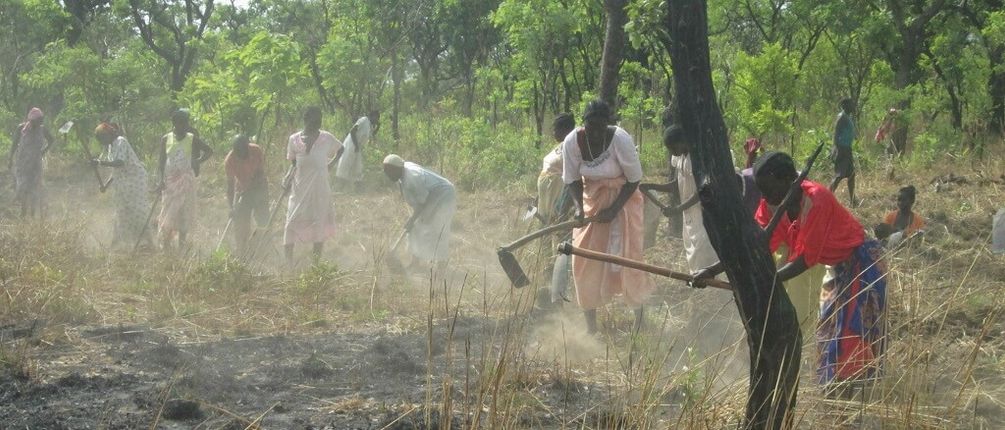
South Sudan: Improving food security, access to water and hygiene
The conflict in South Sudan continues to force families to flee their villages and seek refuge in urban areas. With the growing number of displaced people in the suburbs of Juba, the country's capital, access to food and clean water have become pressing issues.
Malteser International is distributing seeds and agricultural tools to members of the community. Families are also taught improved farming methods in training sessions, allowing them not only to increase the yield, but also the diversity of their crop. This means they can enjoy a healthier diet for the long-term.
Malteser International is also working with local institutions to improve the quality of water in the region. We are focussed on removing biological contaminants that lead to dieases and training community members on safe water practices.
The sanitary situation is improved by the construction of standardised latrines and training on good hygiene practices.
Despite a peace agreement in 2005, which brought an official end to the decades long war of secession, and its eventual independence on the 9th of July 2011, South Sudan's recent history has been marred by insurmountable inter-ethnic conflicts.
Renewed outbreaks of violence in 2016 worsened the security situation in the young nation as displaced families fled to urban areas, and have had to survive with little or no income. In moving its project to the township and providing emergency relief for these families, Malteser International has ensured that livelihoods are secured even in an unfamiliar setting.
However, the growing population in the townships coupled with poor state structures mean that internally displaced persons are left deprived of the basic essentials like food, sanitary facilities and water. This has led to a recurring outbreak of preventable diseases like cholera and diarrhoea. In addition, food shortage is exacerbated by rising inflation and many families are no longer able to feed sufficiently. Children have borne the most brunt of this situation. Studies have shown that 56 percent of children under five in Juba suffer from chronic malnutrition, 24 percent from underweight and 20 percent from acute malnutrition.
Creating healthy living conditions and improving the food security in the suburbs of Juba by:
- Improving access to safe water in two settlements in Juba
- Improving sanitary conditions by constructing high-standard latrines
- Supporting good hygiene practices in households, schools and public spaces
- Ensuring food security and improving livelihoods for vulnerable households
- Providing training for water committees in the management of public water points and water quality control at household level, as well as in hygiene promotion and maintenance of latrines
- Training community members on the safe water practices
- Construction of rainwater collection systems in schools and public buildings
- Joint Construction of latrines with local communities ("Urban Led Total Sanitation")
- Community hygiene awareness campaigns and establishment of health clubs in schools
- Construction and allocation of areas for seedbeds and model gardens
- Training on the efficient cultivation of staple foods and local vegetables
- Distribution of seeds and basic agricultural tools to households
Country Info
Capital: Juba
Area: 644,329 km²
Population: c. 12 Million
Project data
Donors: German Federal Ministry for Economic Cooperation and Development (BMZ)








